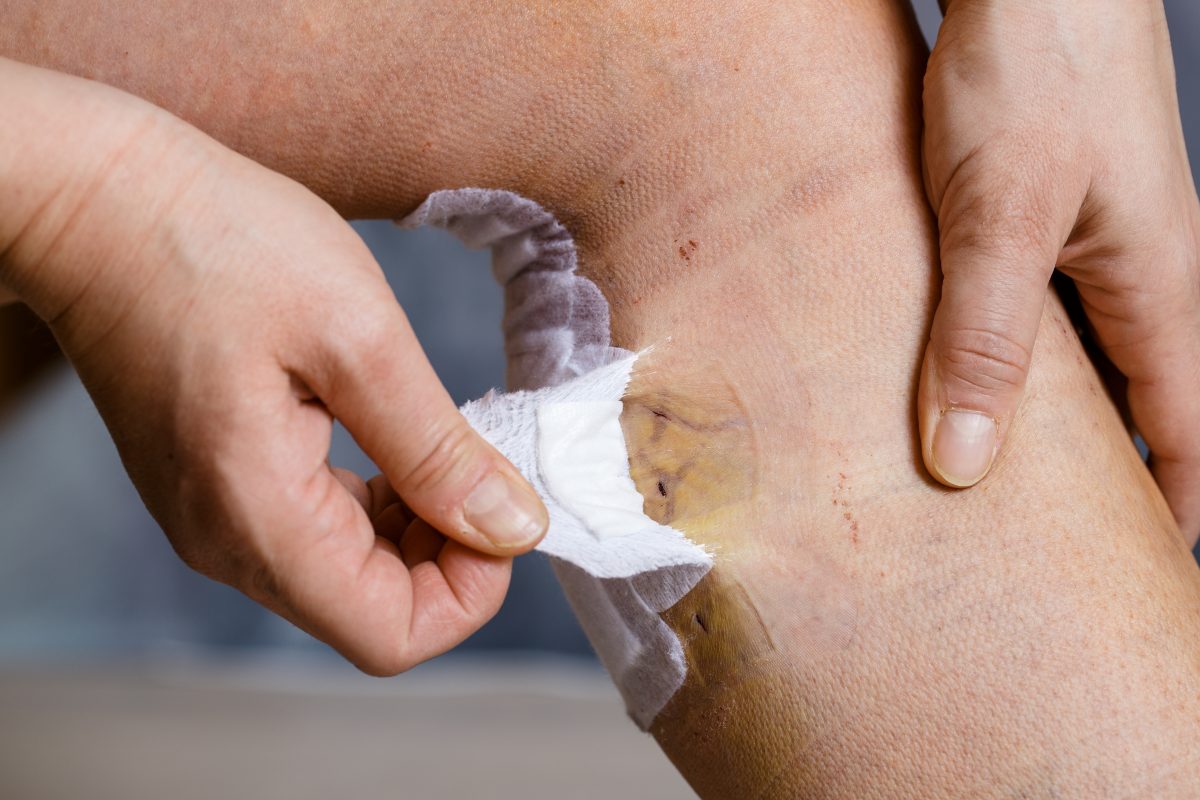When recovering from your surgery, know that the process shouldn’t be complicated. However, that would require some energy and time as well as your disposition to follow the instructions and advice given by the surgeon.
So if you want to make the most of your recovery in order to get back to the life you had prior to getting surgery, then keep reading. In this article, you’ll discover some tried-and-true surgical aftercare tips you can try regardless of the procedure you’ve undergone.

- Take Care Of Your Incision
Although this doesn’t involve a difficult process, some patients clean their incisions in a rather exaggerated way. Many individuals brush their incision and get rid of the forming scabs, while others tend to use peroxide and alcohol to keep the area germ-free. However, unless your doctor advises you to do those things, water and soap are more than enough.
Know that scabbing on surgical staples is normal. In fact, eliminating them may result in your incision healing slower than expected. On the other hand, soaking your incision to keep it clean can be dangerous, too, since doing so makes the incision line weaker. That’s why most surgeons instruct their patients to take a shower rather than a bath following surgery.
- Work With A Personalized Post-Surgical Care Provider
If you really want to maximize your recovery, you may want to work with a trustworthy provider of personalized surgical care like Luxe Concierge Nursing.
When you work with that kind of care provider, compassionate and experienced registered medical professionals will look after you. They’ll prioritize your comfort while optimizing the results of your surgery by monitoring drains and incisions closely, assisting with your day-to-day activities, and managing your medications. With their assistance, you’ll have complete peace of mind as you recover from your surgery.
- Always Attend Your Scheduled Follow-Up Appointments
When they’re feeling good and their wounds are healing well, some patients forego all of their follow-up checkups because they think it’s just a waste of time and money. Unfortunately, that’s not a good mindset to have, especially if you want to fully benefit from your recovery after getting surgery.
Your surgeon or health care provider would want to know if the incision is healing well and how you’ve been feeling since you last saw one another. But aside from that, they’ll be checking other things you might not be able to look into on your own. This would apply to situations such as when you don’t have a visible incision, which is the case for those who’ve had vaginal hysterectomy and similar surgeries.
The surgeon will also perform follow-up blood work, ensure that your condition has been treated by the procedure effectively, and look for signs of infection. Also, you might need some adjustments in your medication in the weeks following your surgery.
With that said, make sure to keep up with your follow-up appointments.
- Sneeze And Cough Carefully
Did you know that sneezing and coughing the way you’ve been doing it your whole life may not be good for you after you get surgery? This is especially true if you have an incision in your abdomen. Because if you either sneeze or cough the wrong way, it may significantly harm your incision.
Remember that a fresh incision isn’t strong, and a forceful sneeze may cause it to open. Therefore, bracing your surgical incision, which means putting pressure on it, is important when you’re sneezing or coughing. You can do this using your hand or even a pillow if you have one close to you.
- Take Pain Supplements
Depending on the surgery, you might experience some pain after the procedure. Usually, it’ll take a few days or a couple of weeks to go away.
Controlling that pain may be crucial for your mood as well as your recovery in general. It’ll help you get quality sleep. Alternatively, your health care provider may advise you to take prescription or over-the-counter (OTC) medication that can help in easing the pain.
According to research, if you prefer taking a natural approach, turmeric can be used to help reduce pain and inflammation and promote post-surgery recovery. Furthermore, following an anti-inflammatory diet may also promote healing and ease your pain.
Nevertheless, whether you’re taking anti-inflammatory herbs, turmeric, or other supplements, it’s highly recommended that you consult your doctor first. Your doctor will ensure that the supplements you plan to take won’t interfere with your current medications and thus aid in your progress.
- Rest
After surgery, getting enough rest is incredibly important because the body needs to recover from the effects of anesthesia. Typically, it’ll take a day for the anesthesia to wear off. During that period, the best thing to do is to take a rest and let your body start the process of healing.
What’s more, you may need to deal with a lot of pain, and taking medication for that can make you drowsy. Therefore, lie on a comfortable couch or bed and, if possible, raise your incision, apply ice packs to lessen swelling and inflammation, and watch your favorite movies or TV shows or do other activities that are just as gentle.
- Eat A Nutritious Diet
If you want your recovery to go smoothly, it’s important for you to focus on eating a nutrient-dense diet. You have to supply your body with adequate nutrients and more calories than before so you can get back on your feet more rapidly. What’s more, such a diet may also help speed up your recovery period and decrease the risks of infection.
During your post-surgery recovery, make sure to incorporate the following into your diet:
- Protein
Protein is important for post-surgery recovery. In fact, the amino acids present in protein may help in promoting tissue repair and regeneration, strength, and wound healing. Some of the notable protein options you can include in your diet are nuts, seeds, free-range poultry, pasture-raised meats, quinoa, tofu, and seitan. You can also consume some liquid protein and protein shakes.
- Fiber
After getting surgery, experiencing constipation is common. But instead of depending on a laxative, it’s best that you focus on high-fiber diets. Take note that some laxatives may cause damage to the muscles, tissues, and intestines.
Some great sources of fiber are whole grains like seeds and nuts, fresh greens, fruits, and veggies. However, you’ll need to avoid refined sugar and white grains like white rice, white bread, white pasta, junk food, and processed foods since they may increase constipation.
- Carbohydrates
During your post-surgery recovery, you shouldn’t forget about carbs. In terms of carbohydrates, choosing the correct kind is a crucial matter. Pick nutrient-dense and high-fiber carbs like whole grains, beans, fruits, and vegetables.
- Fats
Fats may help lower inflammation, increase energy, improve immune response, and enhance vitamin absorption, especially during post-surgery recovery. Some of the fantastic options you can try are coconut oil, seeds and nuts, ghee, olive oil, and avocados. But you’ll need to avoid refined anti-inflammatory oils like peanut oil, sunflower, and safflower.
- Minerals And Vitamins
While carbs, fats, and proteins are a must for your post-surgery recovery, micronutrients like minerals and vitamins are equally essential. You should opt for nutrient-dense food rather than junk and processed foods.
In terms of minerals and vitamins, some of the best options include vitamin A from dark green veggies and oranges, vitamin C from berries and citrus fruits, and vitamin D in eggs and fish. In addition to that, zinc present in seafood, beans, and meat as well as iron in apricots, meat, and beans may help in promoting wound healing and improving your energy.
- Quit Smoking
Smokers run higher risks of complications from surgical procedures compared to non-smokers. When smoking, the body will absorb nicotine and monoxide, which would cause the level of blood oxygen to fall. It’ll even restrict the flow of blood. Keep in mind that oxygen is vital for wound healing, so the more you smoke, the more likely it is that your wound will take much longer to heal. And one more thing: smoking may also result in infection.
When you quit or stop smoking just a day before your scheduled surgery, the oxygen in your blood will start to increase since the nicotine and carbon monoxide will begin to break down.
The majority of doctors advise their patients to stop smoking at least a month before their surgery and for another one month immediately following the surgery. Some surgeons won’t even perform the procedure if they find out you’ve been smoking. This is especially true for those who are getting plastic surgery. It’s because mixing nicotine with that kind of surgery may result in delayed wound healing, wide and thick scars, infections, increased pain, and blood clots that can be life-threatening.
- Contact Your Health Care Provider When A Problem Arises
If you feel that something isn’t right or there’s a problem that’s getting in the way of your recovery, it’s advisable to contact the surgical facility or doctor’s office right away. While side effects may be common, it’s crucial to check on any issue that comes up to prevent it from getting worse or resulting in an emergency situation.
Final Message
With the advancement in technology and the wide variety of post-surgical solutions today, recovering after going under the knife is easier than ever before. To maximize your recovery while ensuring safety, consider giving the abovementioned aftercare tips a go.
